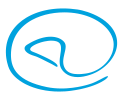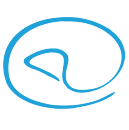Interviewing for jobs can feel like searching for a soul-mate. Sometimes it takes lots of awkward first dates.
A first date can often include:
- Sweaty palms
- Anxiety
- Fear of the unknown
You begin to pull into the driveway of your potential new employer. Your heart is racing as if you are about to ride the world’s tallest, fastest rollercoaster. You have practiced. You have shared this moment with your closest friends and family and now it’s “go time”.
You feel confident that you can answer basic interview questions: “Tell me about yourself” or “Please explain your employment history”. Even though many candidates have a hard time with explaining who they are as a person, we can all bullshit our way through these basic questions during a job interview.
Some call this “Fake it ‘til you make it”. Much like dating, we all tend to “fake it” until we find the right person. The same rule can apply to the professional world while seeking a fulfilling career.
It’s about finding the perfect fit:
What does the “perfect fit” look like to you?
Does it include a full benefits package?
How about paid time off, top-notch compensation, employee engagement (i.e. employee appreciation week), professional development and a flexible work schedule?
The perfect fit as we know is different for everyone. Interviewees should conduct research about potential employer prior to the interview and also during the interview itself.
How is this accomplished?
Read the company website. Most companies include a detailed section for history/about us/FAQs. You can learn an enormous amount of information about the company in a short amount of time browsing this information.
Blog postings or articles about company awards/community recognition may also provide good information. During the interview, ask questions about organizational culture and why others have selected this employer to be their employer of choice. It is also acceptable to ask about work hours or possibility for professional development/growth during the interview. If the employer does inquire about your desired compensation and benefits, it is OK to answer them.
Top 5 Interview “Do’s”
- Present a resume folder with your resume, cover letter, two letters of recommendation, and copies of any degrees and/or certificates. Resume folders are relatively inexpensive at Wal-Mart. The purpose of the resume folder is to leave the employer something more than just a resume. This folder containing extra information can definitely help you stand out amongst the competition.
- If the employer invites you to arrive dressed business casual attire, politely thank them for allowing you the option, but always wear a full suit to an interview. First impressions are everything and the job market is too competitive to fall short or only give 90% while trying to score your next job.
- Within 24 hours, send a follow-up thank you email. Do not write three whole sentences. By using bullet points, list three takeaways from the interview and how your transferable skills will increase results for the company overall.
- Be aggressive by showing interest! Follow-up within a week with a thank you call to ask where the department is in the hiring process. This is your last attempt at securing the position of your dreams, so make it count. There is no harm in placing a professional phone call once.
- Always, always, always ask for the business cards of the individuals you have spoken with. This includes the person that interviewed you as well as the Front Desk Receptionist. Some organizations have business cards of all key staff members at the front desk. When this option is not available, simply ask. Note also that you can utilize LinkedIn to search for additional contact information if business cards are not available.
Interview Mishaps:
- When the interviewer asks the interviewee “Tell me about a time you went above and beyond to satisfy a customer”. This type of question can easily make anyone look good-make sure you prepare a stand-out answer.
- Refrain from arriving late without calling in advance if you cannot avoid it. Its one thing to arrive late if you called in advance. It’s another thing to show up bursting in the doors huffing and puffing while apologizing profusely.
- Do not ever walk out in the middle of an interview unless it’s for an absolute emergency. If you feel the interview is going south, you must maintain professional courtesy at all costs. By walking out, you may permantely burn a networking bridge for the future, whether this particular organization is a fit or not.
- Unbutton your suit jacket before sitting. It is proper etiquette while sitting down for a a nice dinner. The same rule applies to an interview/business meeting.
- Two ears, one mouth. Do not at any point interrupt the interviewer or become overly chatty. This could be a sign of poor listening skills, which are incredibly important to any employer looking to bring someone on for the long haul.
Interview Resources:
- www.hireauthority.com. This site is an excellent example of motivational interviewing for both the hiring manager and the interviewees.
- www.bls.gov
- Many times during the interview process, a potential employer will ask you for your desired compensation range. Explain that you have done your due diligence and based on current statistics for XYZ city and state, the range is XYZ for this particular position. For example, the compensation range for a HR Manager in Tampa, FL is $55,000-$70,000.
- Ask your undergraduate or graduate school Career Services Departments for a list of mock interview questions. Feel free to ask me as well: liz.woloszyk@gmail.com
- https://www.indiabix.com/hr-interview/questions-and-answers/
- Long list of many different questions to be prepared for
When will I know I found the right fit?
Similar to dating, you will probably get an instinctive feeling about job after the interview process. It’s OK to acknowledge the fact that all interviews are not perfect and you’re not a fit for every position. Attending interviews and making new connections through networking are perfect for practice and providing options – without these experiences, you may never know which career direction is best for you.


